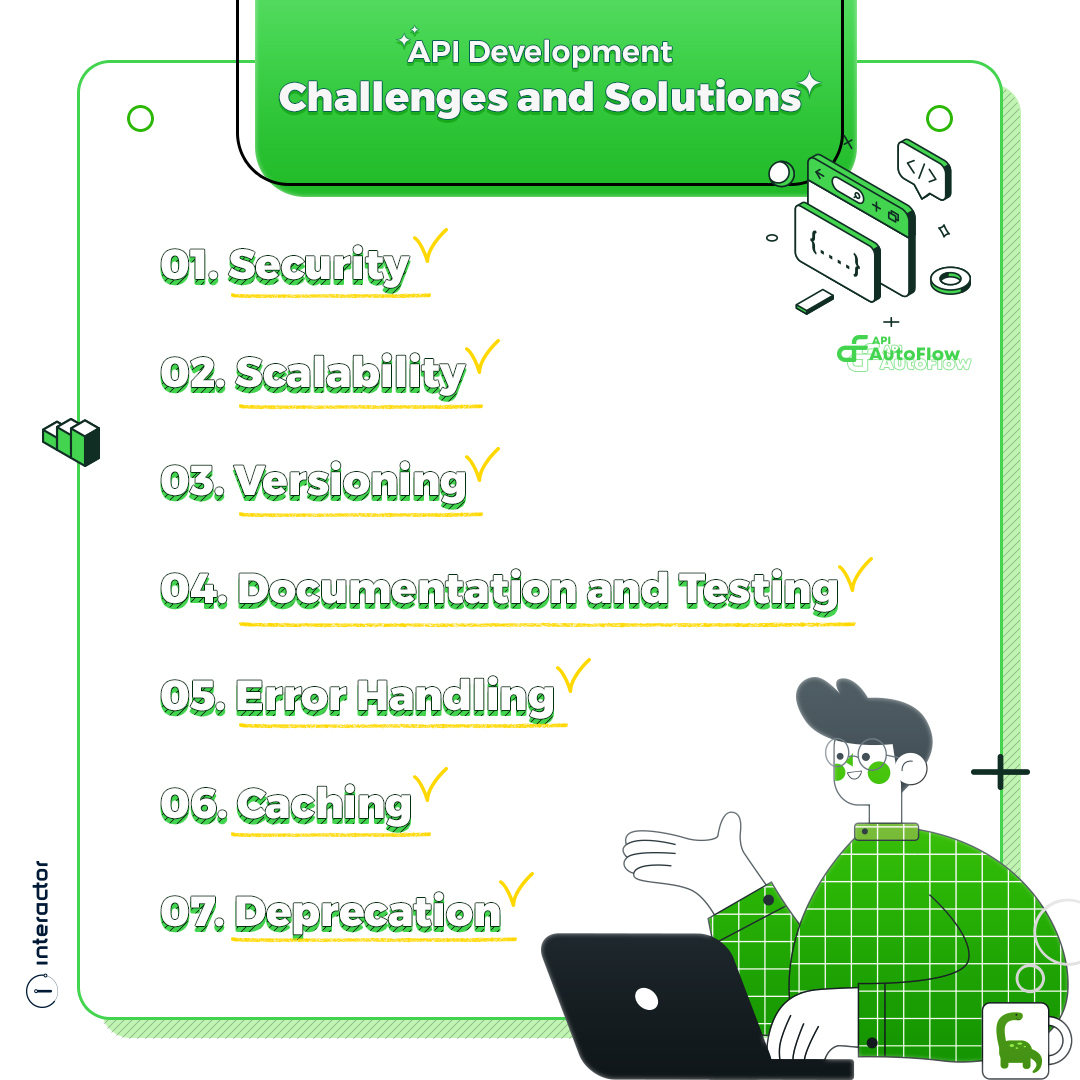Top 7 Challenges with API Development
It’s no secret that APIs are becoming the backbone of every rapidly growing product. But, with the increasing popularity of APIs comes a set of challenges that developers must overcome to create a seamless and secure user experience.
What are the top challenges faced in API development, and how can you leverage solutions for your teams?
Top Challenges Faced in API Development
- Security: One of the significant challenges in API development is ensuring the security of the data being exchanged. This includes protecting against common threats such as SQL injection, cross-site scripting (XSS), and cross-site request forgery (CSRF).
- Scalability: As APIs become more popular, they may be required to handle many requests, and scalability becomes a significant challenge. This involves ensuring the API can handle increasing requests without experiencing performance degradation.
- Versioning: Keeping track of different versions of an API can be a challenging task. It requires careful planning and management to ensure that older API versions continue to work while new features are added.
- Documentation & Testing: API documentation is vital for developers to understand how to use the API, but it can be challenging to keep the documentation up-to-date as the API changes. Testing is also a crucial part of API development, but it can be difficult to test all possible scenarios, particularly when the API is integrated with other systems.
- Error Handling: API errors can occur for various reasons, such as invalid input, network failure, or an internal bug. Proper error handling and clear error messaging are essential for providing a good user experience and making it easy for developers to troubleshoot issues.
- Caching: Caching is a technique used to speed up the response time of an API by storing the response of a request in memory. However, managing cache invalidation and eviction can be a challenging task.
- Deprecation: As APIs evolve, older endpoints may become deprecated and eventually removed. Deprecation requires careful planning and management to ensure that existing clients are not affected by the removal of endpoints.

Potential Solutions
The easiest way to overcome these challenges is using a no-code API solution like API AutoFlow. The solution already has versioning, error handling, security, caching, etc., that the developer does not have to worry about.
With a no-code solution, the developer does not have to be an expert; the product guides the user to ensure these challenges are overcome.
- Security: To address security concerns, developers can implement various security measures such as input validation, using secure HTTP (HTTPS), using tokens for authentication and authorization, and implementing security best practices.
- Scalability: To address scalability issues, developers can use various techniques such as load balancing, caching, clustering, and horizontal scaling. Using cloud-based platforms such as AWS, Azure, or Google Cloud can also help with scalability.
- Versioning: To address versioning, developers can use versioning in the URL or headers of the API requests. This allows multiple API versions to be maintained and accessed simultaneously. Additionally, using versioning in the documentation can help developers understand which version of the API they are using.
- Documentation & Testing: To address documentation and testing, developers can automatically use OpenAPI (Swagger) to generate API documentation. Automated testing tools can also ensure that the API is working as expected.
- Error Handling: To address error handling, developers can use clear and consistent error messages, providing detailed information on the cause of the error, including a unique error code for each type of error.
- Caching: To address caching, developers can use API AutoFlow’s caching frameworks that automatically handle cache invalidation and eviction. Additionally, developers can use caching strategies such as time-based or LRU (Least Recently Used) eviction policies.
- Deprecation: To address deprecation, developers can use a deprecation process that includes communicating the deprecation plans to the developer community, providing alternative endpoints, and giving enough time for developers to update their code before the endpoint is removed.
API development has its challenges, but none that cannot be overcome. From security concerns to scalability issues, developers must be aware of these challenges and take steps to address them.
By understanding the challenges, knowing the available solutions, and taking the necessary steps to address them, developers can create robust and reliable APIs that provide a seamless experience for users.
Ready for a No-Code Solution?
Take a look at API AutoFlow and discover how it can support your team. Reach out to schedule a call.

May 17, 2023

Comments